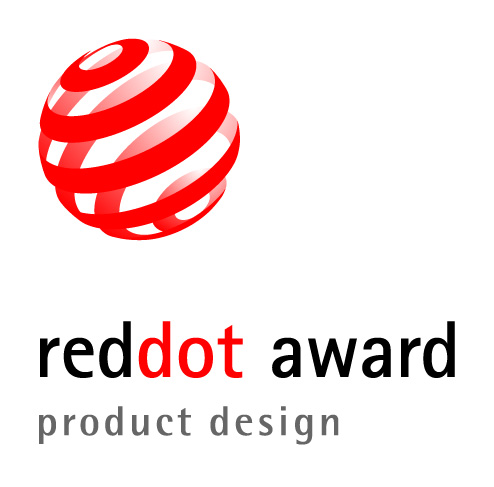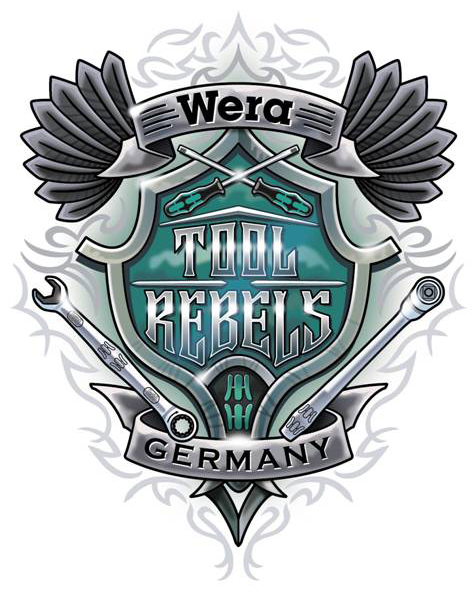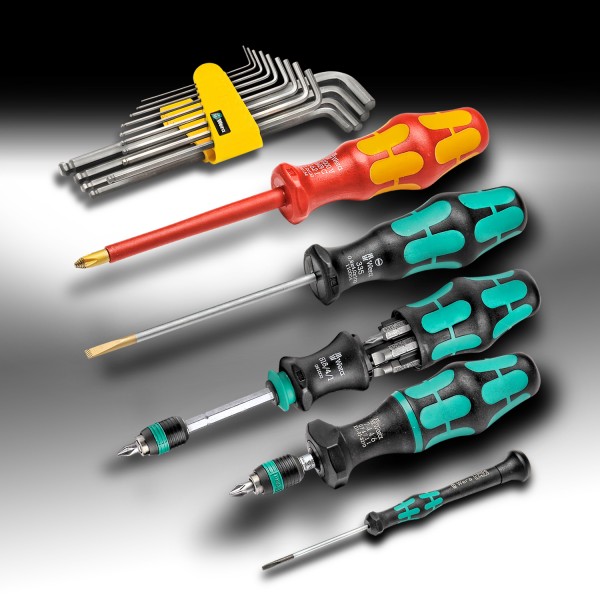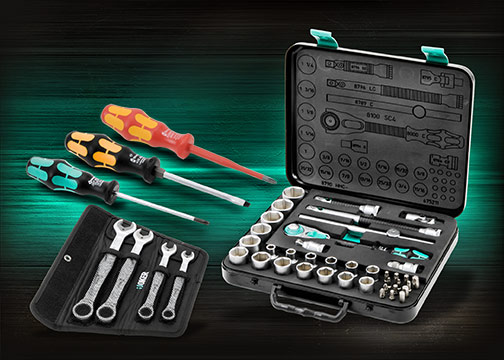When medieval knights first used a primitive screwdriver to secure their jousting armor, they never could have imagined that such a tool would still be used centuries later. In fact, the general concept of a screwdriver hasn’t changed very much since the Middle Ages. People still need a screwdriver to turn screws and fasten things together. However, the different uses for a screwdriver have changed dramatically. Not only are screwdriving tools still important in present day, the different applications for such a tool are almost endless.
Although not quite one century old, Wera Tools started designing and producing screwdrivers in the founding family’s home in Wuppertal, Germany more than 75 years ago. Today, the company is the leading manufacturer of industrial quality fastening tools in Europe and Wera products are sold worldwide.
Wera Tools started with a specific focus on screwdrivers, being the first company back in 1968 to introduce an ergonomic handle to the industrial market. That basic design, called Kraftform, is still used much as it was in the 1960s. “That’s because it was shaped for use by the human hand, and the hand hasn’t changed much either,” explained Ian Parkhill, President of Wera Tools North American Division. Parkhill continues: “When ergonomics are executed correctly, it provides the operator with perfect operation. That’s the essence of Kraftform design. Our screwdrivers are designed to give skeletal and muscular support, reducing fatigue, and making work more efficient.”
Ergonomics is the study of people’s efficiency in their work environments. Although this type of study emerged in the 19th century, it is only in the Information Age that it has been widely applied across disciplines when designing and manufacturing products which take into account the human factor.
Using ergonomics in their design, is a critical element of the Wera Tools product development process. “Every tool that we produce has unique design features incorporated but always with the primary motivation being the best possible user experience with our products,” said Parkhill. A result of this attention to design has helped earn Wera Tools numerous awards, including the prestigious reddot Product Design Award and the iF Product Design Award.
The reddot Design Awards are an internationally recognized awards program which started in 1954 and judges submissions based on good design and innovation from a collection of worldwide entries. Wera began winning design awards from reddot beginning in 2010. The iF Seal of Quality is also recognized the world over, with entries ranging from automotive companies to individual design studios. Wera began collecting iF design awards in 2009.

Such international acclaim demonstrates that design is more than just important at Wera Tools, it’s a passion. Design matters at Wera.
Using design as its guiding force, Wera Tools has incorporated the same passion it has for design into every area of the company — that desire for excellence has become a way of life for employees. For example, early on in the company’s history, product development was focused on just the screwdriver but has now grown to include screwdriver bits and hex-keys, and most recently, Wera has added a complete and innovative range of Joker combination wrenches, as well as the extensive family of Zyklop ratchets and socket sets. Wera now offers more than 3,000 products in the screwdriving industry, including a unique range of precision torque tools. Needless to say, the company’s screwdriver programs continue to represent a significant portion of its overall business in North America.
The screwdriving industry is quite competitive in the North American market. However, there are “far more tool generalists in the game than those who specialize in this tool,” said Parkhill. Many competitors offer everything from tape measures to bolt cutters and everything in between. Parkhill believes that Wera being a fastening tool specialist sets the company apart and allows them to stay connected to the end-user with their dedicated product development efforts in a focused manner.
As for the company’s focus on quality, Parkhill explains it as: “Very simple. It’s the only way we do anything.” In the Wera manufacturing facility, all operations are constantly monitored through an in-house statistical process control (SPC) system and the company operates under ISO-9001 standards. Wera’s SPC system uses statistical methods to monitor and control the company’s processes to ensure quality and eliminate inefficiencies. In addition, Wera takes steps to reduce any environmental impact throughout its manufacturing process as well as the materials used in packaging design. All packaging materials are fully recyclable and waste is eliminated in every area possible.
One of the most exciting areas of change in recent years is Wera’s use of technology in its marketing strategy. “We use new media – video, website, and the new Wera App – to promote our products. These communications methods are invaluable when trying to explain the unique features and benefits of Wera Tools,” explained Parkhill. The Wera App is available on iTunes and it provides a framework for use in the field on a handheld device such as a smart phone or tablet guiding users on the best way to use a Wera product for the job at hand. Wera TV is a similar educational tool as the app and provides information about Wera products and how to use them most effectively in easy-to-understand video demonstrations.
Wera is a company that knows how to blend new technology with the company’s historic traditions. The original founding family’s home is still the company’s global headquarters. Needless to say, the buildings have expanded and been renovated over the years but it remains the home for Wera’s administrative, financial, and logistical operations in Europe. There are approximately 100 employees working in that facility along with about 450 on staff in the company’s production facility located in the Czech Republic. In addition to its North American operations, Wera also has locations in the United Kingdom, Russia, and Asia.
It’s that unique blend of old and new that has helped Wera Tools become a recognized leader in the world of fastening tools. The company has taken the ancient screwdriving tool, made it to perfectly fit a human hand, and then promote the tool using state-of-the-art technology so its message is available for customers worldwide through the click or swipe of a personal computing device. As for the future, the only clue North American President Ian Parkhill will reveal is this: “It won’t be boring, I can promise you that!”





